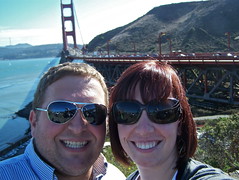If you understood all of the words in the title… congratulations! You’re a nerd, just like me. If you didn’t, do not fear; it means you are one of the normal ones.
This is a paper I wrote for a Youth, Culture and Consciousness class. It takes a look at the concept of “slacktivism” (slacker + activism = slacktivism) and what it’s implications are for the mission of God. It talks (implicitly) about the pitfalls of social media in ministry and mission. I hope this can shed a little bit of light on the ideas surrounding mission, hope, and our modern technological context. Without further ado… here it is!
Cheers,
Eric













Interesting points. I’ve been frustrated with slacktivism on facebook too. I wonder what your perspective is on this in the context of the Egyptian revolution. I’d say it strongly supports your conclusion that there is possibility for something beyond superficial slactivism in the social media context. Facebook is a tool and it can be used to organize people in a meaningful and powerful way, but it’s power (like any power) is only in the people who use it. That’s the paradigm shift that I think hasn’t quite sunk in. Not to be too grand, but I see parallels in the invention of printing press. Facebook didn’t start the Egyptian revolution, just like the printing press didn’t start the Reformation, they just enabled the potential that already existed in the people.
One other thing occurs to me; slacktivism isn’t really new. I think people have always engaged in superficial support of causes, social media just makes it more public. I can think of many conversations I’ve had with people where they are talking about some issue in the world and yet have no intention of doing anything about it. Someone saying “Isn’t it a shame that there is so much poverty in the world.” doesn’t usually result in them even giving charity, let alone taking stock of how they participate in the very system that perpetuates that poverty. As much as I get irritated at the theology of the Epistle of James, I think he makes this point very clear:
Thanks for posting this, by the way, it’s fun to see what you’re working on this year.
Thanks for the response, Josh. And I think you’re definitely onto something. Phyllis Tickle would totally agree with what you’re saying about the printing press phenomenon. I think the broader spectrum of the internet is certainly an on-par parallel with the press. Social networking is certainly a great component of that.
I think you’re right when you say that it’s in the people who use it. I saw this in the floods that Fargo has fought the past few years. People put an address up on Facebook and within an hour, a hundred people were there to help sandbag. It was pretty amazing. This is (a smaller scale of) what happened in Egypt. If social media is used as a tool to organize outside of the virtual world, then it’s very helpful. However if it’s just “liking” a group with an evangelical platitude as a title or changing your profile picture to a bike to help stop Alzheimer’s, then it’s just stupid and entirely ineffectual.
I love the James quote. It’s definitely right on. I wish I would’ve had it to add in there. It’s a great addition. Thanks, man! Hope your Sunday goes well tomorrow. Take it easy.
Thought you might appreciate this quote from my brother in his little bio for his new job. Here’s the link http://pubpastor.blogspot.com/2011/02/trinity-lutheran-college-welcomes-new.html
I totally agree and think of social media as the new format for discourse in this reformation, just like the fliers and pamphlets of the 16th century. I guess maybe I’ll have to read Phyllis Tickle’s book.
Definitely. “The Great Emergence”. Great stuff.